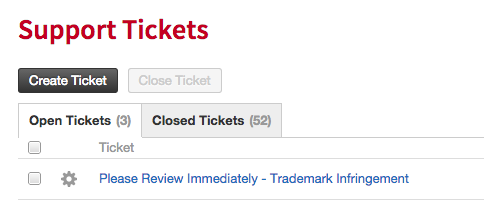 The sight of commuters on the train, coffee drinkers in the cafe, or employees on their lunch break engrossed in their smartphones or tablets has become ubiquitous through recent years, and is a social trend that should force business owners everywhere to take their mobile content marketing seriously.
The sight of commuters on the train, coffee drinkers in the cafe, or employees on their lunch break engrossed in their smartphones or tablets has become ubiquitous through recent years, and is a social trend that should force business owners everywhere to take their mobile content marketing seriously.
However, the single most important aspect for any business with aspirations of engaging with a mobile audience is to have a mobile friendly website that seamlessly resizes all the content to fit whatever screen it is being viewed on.
Not only are those that don’t seen as outdated by visitors, they will also find their Google rankings suffer on mobile searches too. As the internet goes mobile, failing to adapt means being left behind, and all the mobile content marketing in the world won’t help if your website is stuck in the dark ages.
What follows is why your business needs a mobile friendly website.
A mobile friendly public
The days when laptop or desktop internet usage accounted for the majority of time spent online are over, with the tipping point for mobile usage surpassing browsing on more static machines coming in early 2015.
Put simply, more people are using their phones and tablets to browse the internet than are using laptops and computers, and they expect your website to work on their devices.
Responsive websites take all of your content, be that copy or images, sliders, or even products for sale, and automatically resize it to fit the screen it is being viewed on, while menus too are adjusted to enable the user to easily navigate your site.
In truth, the average mobile device user now takes this for granted, and will only notice when it doesn’t happen, at which point they will most likely leave even your best mobile content marketing efforts unread and go elsewhere.
While the obvious benefit here is to the user with the site becoming easier and more enjoyable to navigate than the full web version when viewed on a mobile device, there is a certain search engine giant who will also like your new responsive website more than your old one.
Google responds to responsive
On April 21st, 2015, Google launched a brand new mobile algorithm that rewards responsive sites in their mobile search results.
Those searching for products and services on Google using their mobile device will get results that take into account which sites are mobile friendly, with those that aren’t finding themselves omitted from the search, no matter how good their mobile content marketing.
Google’s new algorithm looks to see whether a site’s text is readable without zooming, if the content is sized so no horizontal scrolling is required, and that links are far enough apart that the correct one can easily be tapped; all criteria that a responsive website should have no fear of fulfilling.
If you want to be rewarded for your mobile content marketing efforts, you will now need a mobile friendly website to rank in mobile Google searches.
Adjusting to fit your market
If you needed any more convincing of the need for a mobile friendly, responsive website for your business, take a look at your competitors.
The chances are they have already made the shift, meaning they have a massive advantage over you when it comes to reaching the ever growing mobile internet user demographic.
As well as providing a better user experience and being more visible on mobile Google searches, your competitors will also be saving time and money behind the scenes that can be put to use in their mobile content marketing campaign.
Before the advent of responsive design, site owners had the option of providing a mobile version of their site, although this meant paying for, maintaining, and constantly updating two separate versions of the same site. If you are still doing this, a responsive website will eliminate the need, allowing you to maintain one version of your site that will function perfectly on any device.
With more people browsing and buying on mobile devices than desktop or laptop, Google rewarding mobile friendly devices to such a degree that those without the functionality are excluded from mobile search results, and your competitors most probably already on the mobile friendly website train, can you and your mobile content marketing afford not to join them?
Check out our One minute tip on Mobile Marketing on Youtube here:













